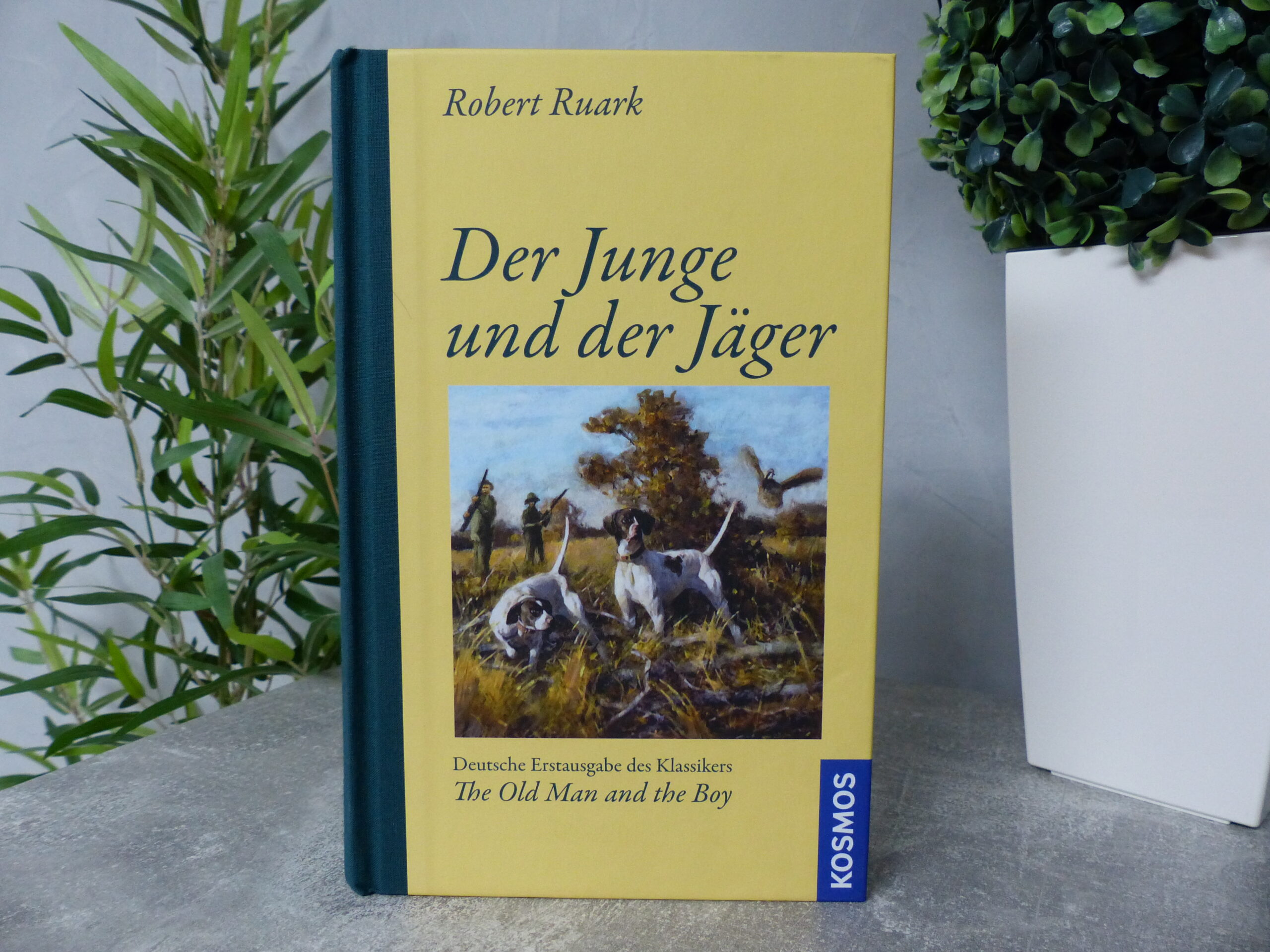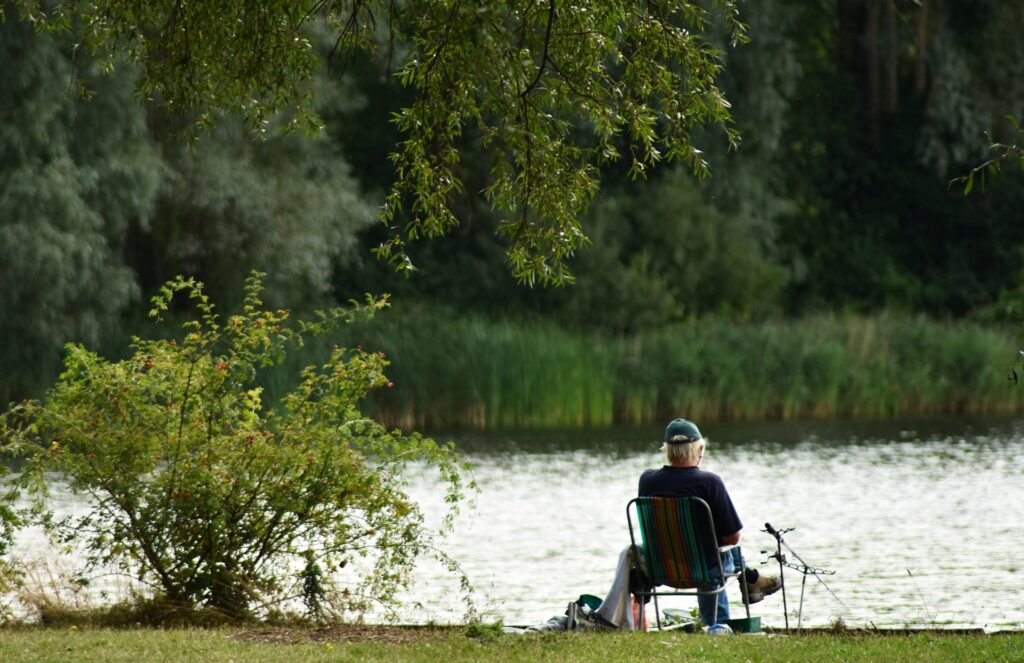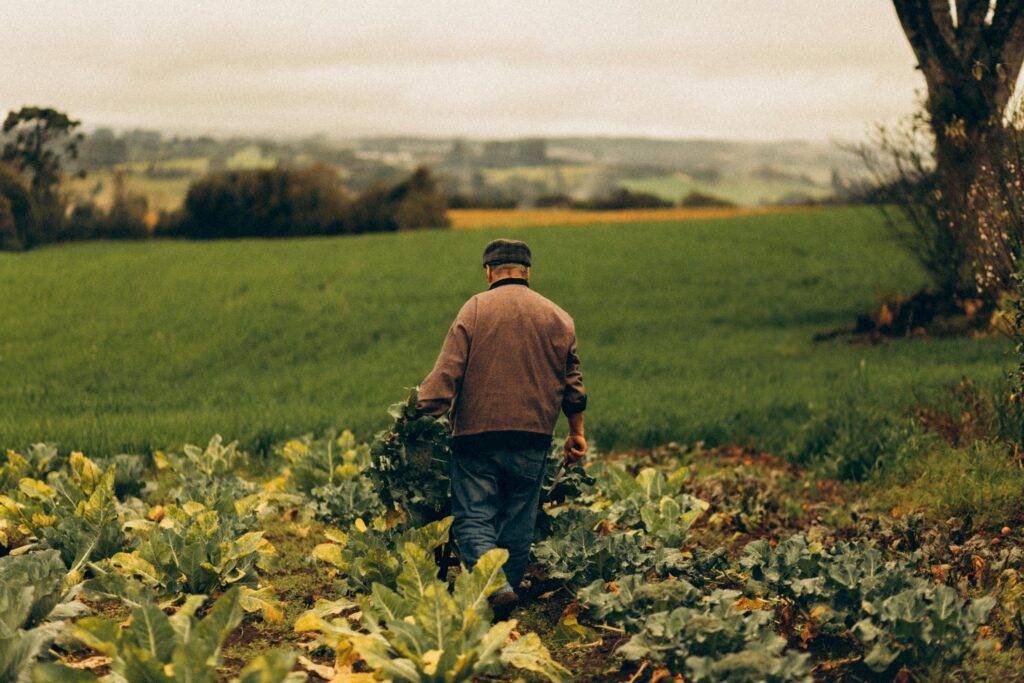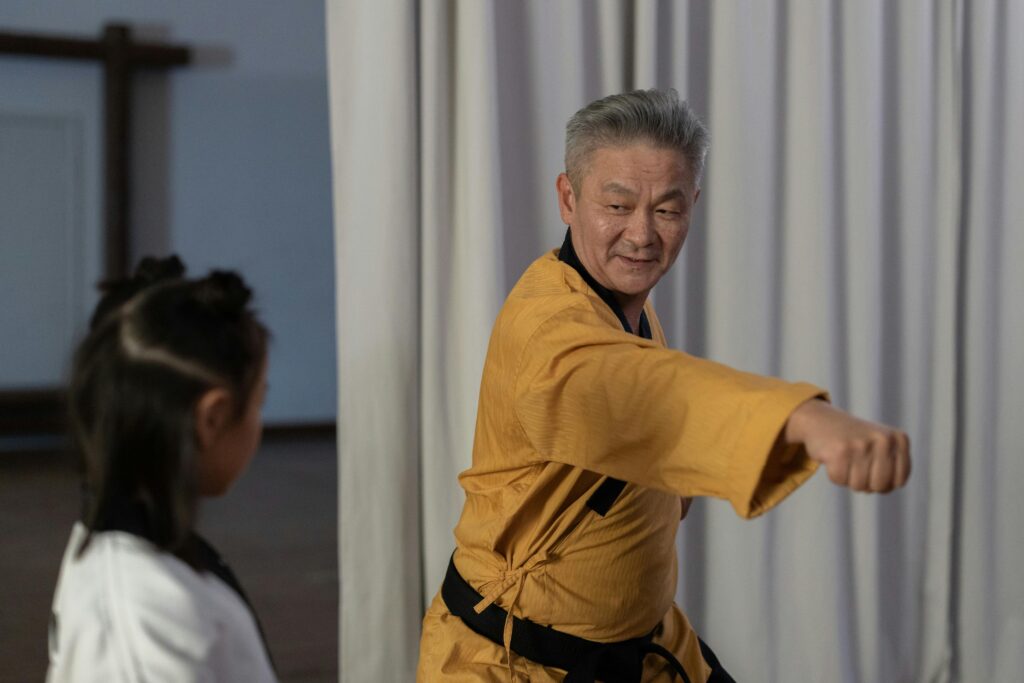
I was given The Old Man and the Boy by Robert Ruark by my first real mentor, who also happens to be a devoted hunter. After we went on a few hunts together, which I thoroughly enjoyed, he handed me the book, saying, “This is the one book every beginner hunter needs to read. After that, you can read whatever you please.” I wasn’t sure what to expect, but oh boy, this book did not disappoint. And it’s not just about hunting at all — it’s about so much more than that.
Published back in 1957, The Old Man and the Boy might be an older book, but it carries timeless lessons. It’s a semi-autobiographical novel where Ruark reflects on his childhood experiences growing up under the guidance of his grandfather. The Old Man — as his grandfather is called — teaches Bobby (the boy) not just how to hunt and fish, but how to live with integrity, patience, and respect for the world around him. The relationship between the two is the heart of the story, and through their adventures, Bobby learns the deeper lessons of life that aren’t necessarily found in classrooms.
To me, the book felt more like a conversation than a traditional story. The Old Man wasn’t just teaching Bobby; he was teaching me too. Lessons about the beauty of nature, the value of moderation, the importance of moral integrity, and how essential it is to pass knowledge down to the younger generation. It reminds me very much of the time I spend with my own mentor and the volumes of knowledge he teaches me just by letting me tag along and observe.
Here are some of the biggest lessons from The Old Man and the Boy, ones that stuck with me long after I finished the last page.
Life Lessons from The Old Man and the Boy
Find Beauty in the Small Things
There’s something magical about walking through the woods at dawn, the air crisp and everything still quiet — the way sunlight reflects off the dewy grass, or how the leaves shimmer in the breeze. It sounds simple, but these small details make you see the world differently.
That’s the kind of mindset the Old Man teaches Bobby. Whether they’re sitting on the porch listening to the crickets or watching birds soar overhead, the Old Man shows Bobby how to truly see the world around him. It’s not always about the big moments — the trophy catch or the successful hunt. Sometimes, it’s the quiet, often unnoticed beauty that matters most.
I’ve carried that lesson with me, even when I’m just out walking the dog. The way the seasons change, the sound of the wind through the trees, the patterns in the clouds — all of these small, beautiful things are right in front of us if we just slow down long enough to notice. And in those moments, everything else seems a little less urgent.
Moderation: Less Is Often More
I’ve always admired people who have a healthy sense of balance, who never seem to go overboard with anything. The Old Man is all about moderation. He teaches Bobby that you don’t need excess to enjoy life, and overindulgence — whether in hunting, eating, or talking — often leads to regret.
This isn’t just about restraint; it’s about understanding your place in the world. Taking what you require, appreciating what you have, and knowing when enough is enough.
In a world where we’re typically encouraged to want more and more — more things, more money, more success — this lesson feels especially relevant. Simplicity and balance are underrated, and The Old Man and the Boy brings that truth to the forefront.
Patience Is a Skill Worth Mastering

The Old Man repeatedly teaches Bobby that patience is crucial, whether it’s waiting for the perfect fish to bite or learning the skills necessary to be a responsible adult. In an era where instant gratification is the norm, the value of patience can often feel like a lost art. The Old Man and the Boy shows that sometimes the best things in life come only after waiting — and learning to wait is as important as the reward itself.
Fishing and hunting serve as metaphors for this idea. Bobby is taught that rushing leads to mistakes, both in life and in the field. Whether it’s learning to shoot or to understand people, the Old Man impresses upon him that good things come to those who wait and observe carefully.
Humility: Stay Grounded
There’s something about nature that humbles you, isn’t there? Maybe it’s the sheer size of the mountains, or the way the ocean makes you feel small. For me, it’s the endless stretch of fields behind my house, where the sky just seems to go on forever. Nature has a way of reminding you that you’re not the centre of the universe.
That’s a big part of what the Old Man teaches Bobby. He teaches him to be humble in victory and gracious in defeat. Whether Bobby gets the best shot on a hunt or falls short, the Old Man reminds him to stay grounded. There’s always something more to learn, always someone who knows more than you do. And that’s okay.
I think we could all use a bit more humility. We live in a world that often praises being the best, the fastest, or the richest. But being humble, knowing your place in the world and appreciating what others have to offer, is far more valuable.
Self-Reliance and Responsibility: Owning Your Choices
Mistakes happen, but it’s how you handle them that defines you.
From day one, the Old Man encourages Bobby to be responsible for himself. Whether it’s cleaning up after a hunt or repairing his fishing gear, Bobby learns that self-reliance isn’t just about being able to take care of tasks—it’s about taking ownership of your life.
The Old Man doesn’t sugarcoat things for Bobby. Mistakes are bound to happen, but how you handle them defines who you are. Bobby learns to take pride in doing things for himself, knowing that being responsible means making choices and standing by them, no matter the outcome.
In a world where it’s easy to blame others or avoid responsibility, this lesson of self-reliance feels more important than ever. Taking responsibility for your actions—whether good or bad—gives you a sense of control over your life. It’s empowering, knowing that no matter what happens, you are capable of handling it.
Moral Integrity: Doing What’s Right, Even When It’s Hard
Sometimes the hardest thing to do is the right thing.
Have you ever found yourself in a situation where doing the wrong thing would be easier, but you know it’s not the right path? That’s a struggle I think we all face, and the Old Man makes it clear to Bobby that moral integrity is non-negotiable.
Whether it’s how they treat the animals they hunt or how they interact with people, the Old Man emphasizes that being a good person isn’t about convenience—it’s about consistency.
This is a lesson that feels especially relevant in today’s world, where shortcuts and grey areas are often tempting. The Old Man’s unwavering commitment to doing what’s right, even when no one is watching, sets a powerful example for Bobby—and for all of us.
I’ve found myself reflecting on this often, especially when faced with choices that could be easier if I just cut corners. Doing the right thing may not always be the easiest path, but it’s the one that leaves you with a clear conscience—and that’s worth more than any temporary gain.
The Beauty of Simplicity

The simple life, deeply rooted in nature, is a recurring motif in the novel. The Old Man doesn’t need riches or material luxuries to be happy; instead, he finds joy in a well-cooked fish, a day in the woods, or a quiet evening on the porch. This simplicity is contagious, as Bobby learns to value what’s truly important in life — not things, but experiences and relationships.
Bobby quickly learns that true contentment comes not from possessions but from experiences and relationships. Time spent outdoors with his grandfather teaches him to appreciate the beauty in small, everyday moments.
In a world that often equates success with wealth or possessions, this message of simplicity is refreshing. It encourages readers to strip away the unnecessary and focus on what truly matters.
Courtesy, Respect, and the Importance of Politeness
The Old Man places a high value on courtesy and respect, teaching Bobby that politeness isn’t just about manners — it’s about showing respect for others and for life itself. Whether it’s through interactions with neighbours, the dogs accompanying them or the animals they hunt, the Old Man instils in Bobby the importance of treating others with kindness and respect.
In today’s world, where civility can sometimes feel in short supply, this lesson is a gentle reminder that politeness isn’t outdated. Rather, it’s a reflection of one’s character and a way to make the world a better place, one small interaction at a time.
The Power of Reflection and Contemplation
One of the most beautiful aspects of The Old Man and the Boy is its quiet reflection on life’s big questions. The Old Man teaches Bobby the importance of taking time to think deeply, whether about his actions, the world around him, or the nature of life itself. This contemplative approach to life is something many of us could benefit from today.
Through quiet moments spent together, Bobby learns that self-awareness is crucial. Reflection helps him understand his actions and decisions, shaping him into a thoughtful and mature individual.
In a fast-paced, technology-driven world, the art of reflection is often lost. But as the Old Man demonstrates, stepping back to reflect on what matters helps us grow and make better decisions.
The Circle of Life: Acceptance of Death and Change
One of the novel’s most poignant lessons is its reflection on the cycle of life. The Old Man teaches Bobby that death is a natural part of life and that change is inevitable. Whether it’s the death of an animal they hunt or the passing of time, Bobby learns to understand and accept that life is transient.
The novel doesn’t shy away from these difficult topics but instead embraces them as part of the natural order. It’s a powerful lesson about accepting the inevitability of change and loss — and finding peace in that acceptance.
The Importance of Mentorship

Perhaps the central theme of the book is the importance of mentorship. The relationship between Bobby and his grandfather is the heart of the story, demonstrating how essential it is to pass down wisdom from one generation to the next. The Old Man doesn’t just teach Bobby how to hunt and fish; he imparts life lessons about integrity, patience, and humility.
This mentorship goes beyond practical skills. It’s about shaping Bobby into a man of character. The Old Man gives Bobby the gift of guidance, but he also gives him the freedom to make his own decisions, learn from his mistakes, and grow into an independent, responsible adult.
The book subtly reinforces the idea that it is our duty to share what we know with younger generations. And it’s not about controlling them, but about giving them the tools to navigate life confidently and with integrity.
Treating Children as Adults
A fascinating aspect of the Old Man’s mentorship is how he treats Bobby with respect and as an equal. He doesn’t coddle him or talk down to him; instead, he invites Bobby to think, reason, and act like an adult. This approach gives Bobby a sense of responsibility and maturity that shapes his development.
In today’s world, where children are often shielded from challenges or tough lessons, this method of treating children like adults feels like a rare and valuable approach. It’s about giving them the respect and trust they need to grow into responsible individuals.
Conclusion & My Personal Thoughts on the Book
Reading The Old Man and the Boy feels like taking a slow, peaceful walk in the woods. There’s no rush to get anywhere, but every step brings a new discovery. Ruark’s descriptions pull you right into the outdoors—you can almost hear the leaves rustling, feel the breeze on your face, and catch the earthy smell of the forest floor. His writing is beautiful but never overcomplicated, making it easy to connect with the way he captures nature and the emotions tied to it.
Every time I read about the dishes they cooked—whether it was something from the hunt or a meal back home—it made me seriously hungry. The descriptions were so vivid, I could almost taste them!
It’s not just a story about Bobby and the Old Man; it’s also about how the outdoors can teach you things without saying a word. The lessons here aren’t heavy-handed—they’re baked into the quiet moments of the story, the ones that make you stop and think.
At its heart, this book is a love letter to nature. It captures the kind of peace and reflection you only find when you spend time outside, away from the noise. It reminds you to slow down, breathe, and notice the little things that bring life into focus, by offering a gentle push to reconnect with nature and find solace in its beauty.
Ultimately, The Old Man and the Boy isn’t just a book you read—it’s an experience. It leaves you wanting to step outside, take a deep breath, and enjoy the world around you, even if it’s just during a walk with your dog.
Rating
Relevance and Practicality: 8/10
Not everyone gets to fish or hunt as part of their daily life, but the lessons in The Old Man and the Boy—patience, integrity, and respect for nature—are things we can all relate to. In a world so driven by technology, stepping back and reconnecting with nature feels more important than ever.
Clarity and Readability: 9/10
Ruark’s writing is sharp and approachable. His descriptions of nature are beautifully detailed without ever feeling over the top, and the conversations between Bobby and the Old Man come across as honest and real.
Content Depth: 8/10
While the book focuses on a lot of simple truths, there’s a richness in its simplicity. It’s not a fast-paced novel, but it’s one that offers a lot to think about, especially if you’re in the right headspace.
Final Verdict
If you love spending time outdoors, appreciate the guidance of a mentor, or just enjoy thoughtful stories about life, The Old Man and the Boy is absolutely worth a read. It’s a quiet, charming book filled with timeless wisdom. At the very least, it might remind you to slow down, take a breath, and notice the beauty around you—even if that’s just on your next walk with your dog.
FAQs
The Old Man and the Boy is a semi-autobiographical novel by Robert Ruark that focuses on the relationship between a young boy, Bobby, and his grandfather, known as the Old Man. Through hunting and fishing trips, the Old Man imparts life lessons on patience, humility, and respect for nature.
The main themes include patience, humility, self-reliance, moral integrity, and the beauty of simplicity. These lessons go beyond hunting and fishing, offering valuable insights into life.
No, while hunting and fishing play a significant role in the book, it’s ultimately about the deeper life lessons that the Old Man teaches Bobby — lessons on character, responsibility, and the importance of mentorship.
Mentorship is central to the story. The Old Man provides guidance, not just in practical skills, but in shaping Bobby’s character and teaching him how to be a responsible adult.
Modern readers can learn about the importance of patience, balance, and humility in a fast-paced world. The book encourages a return to nature and finding joy in the simple things.